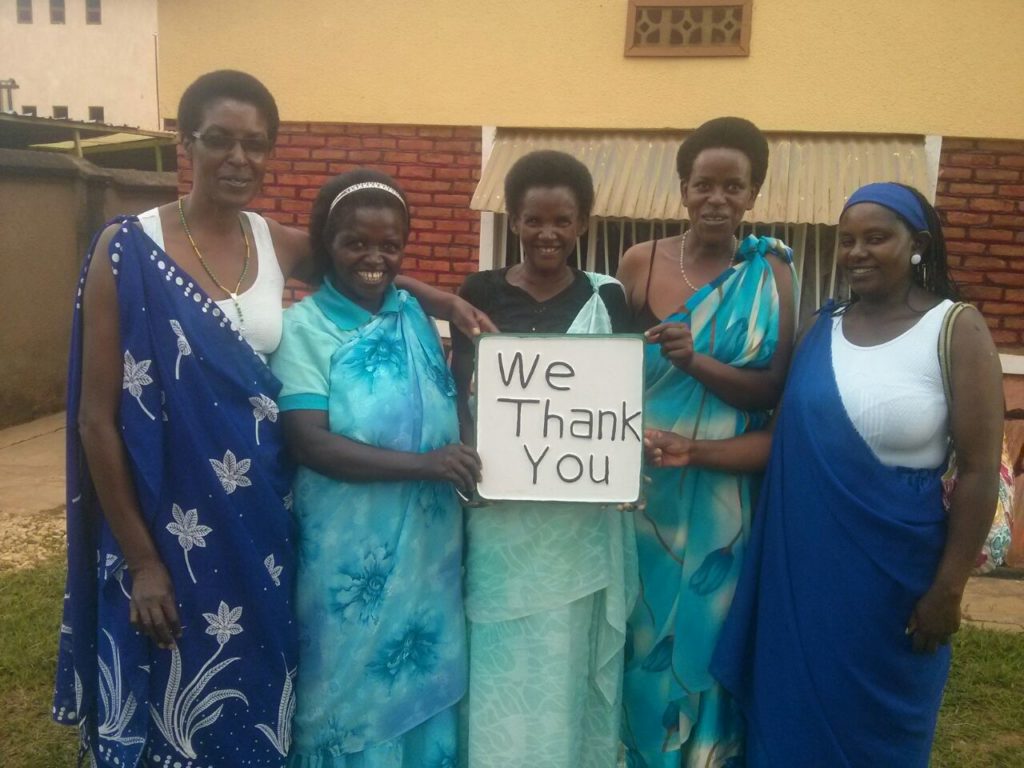
Continuing our series of articles from our Annual Report 2022/23, we outline here our work on our Foundation Rwanda programme.
Through funding from Foundation Rwanda, Survivors Fund (SURF) is currently addressing the education and counselling needs of young people conceived through rape during and under circumstances directly related to the 1994 genocide committed against Tutsi in Rwanda. The challenge for the affected mothers and children is that FARG, the government body that assists vulnerable survivors of the genocide, does not consider these young people eligible for support because they were born after genocide and thus are not by definition survivors. However, they are recognised to be a particularly vulnerable and marginalised population.
Since Foundation Rwanda’s inception in 2007, Survivors Fund (SURF) has been the key partner in providing life-changing services to the Foundation Rwanda families, which has helped more than 1,700 women and their offspring.
Unemployment is at a high rate in Rwanda, especially among young people. Technical and Vocational Education and Training (TVET) has been a principal solution to address youth unemployment because graduates with a trade are more easily able to start their own businesses, create job opportunities and sustain themselves and their families financially. In 2022, 80 new youth were supported to access TVET through funding for relevant courses and programmes.
Even though Foundation Rwanda have supported many young people to attend TVET courses and over 400 of them have graduated with adequate knowledge and skills, many of those graduate’s face unemployment challenge and do not have the capital to start their own businesses.
To address this challenge, Foundation Rwanda has set up a Small Business Innovation Fund programme to provide capital to youth who want to start small businesses. In 2022, 12 youth have been sponsored to start their own businesses and there is a plan to support more youth in the near future.
The students who have grown into inspiring, hopeful young adults now face the challenge of securing jobs or attending university while grappling with the circumstances of their birth and the legacy of trauma. SURF remains committed to continue implementing Foundation Rwanda’s programs with our local partner organizations, Solace Ministries, Kanyarwanda, and AVEGA Agahozo.
M.C *
M.C is 28 years old. “I have had psychological problems linked to how I was born. I managed to find out who was my father when I was a child. But I did not have opportunity to talk to him. When I grew up, I wanted to have talk with him, but he refused to give me the opportunity. He denied that I was his child, saying that he had no relationship with my mother. This has made me suffer because people used to say that I was as wicked as my father. Later he passed away. I wanted to talk to him before he died, but had no opportunity.
My point was to tell him that he is a heartless father, who could not recognize his child, as everyone knew that I am his daughter. I have a lasting psychological wound due to having such a heartless father like him. I live with my mother and young brothers. However, what is hurting a lot is the behaviour of my brother who is a street boy using drugs. This is increasing the trauma symptoms of my mother that she still experiences as a result of rape.
The negative thoughts I always have had has impacted my performance at school as well as my health. I feel very sick most of the time, but the diagnosis shows that I am not sick. Though I have some symptoms, like self-isolation, autoimmune diseases, headaches, sleep deprivation, and repetitive hypertension.
Before coming into youth camp, my life was in danger, as I had no hope for the future and could not plan for my life. But youth camp has supported me to have self-awareness through sharing my bad history and feelings about my father with others for advice and support. I learnt a lot about drug abuse from counsellors and testimonies from my peers, so I might be able to support my brother. After this, I found that my brother was living with trauma which we could now realise in order to help him.
As a result, I have taken my brother to the health centre for counselling sessions, and now I have started feeling comfortable because we have peace at home. My brother has stopped using drugs while my mother is attending counselling sessions as well. Attending youth camp has helped me to know more about mental health issues affecting families, which makes me want to help my family to attend counselling sessions for their relief too.”
